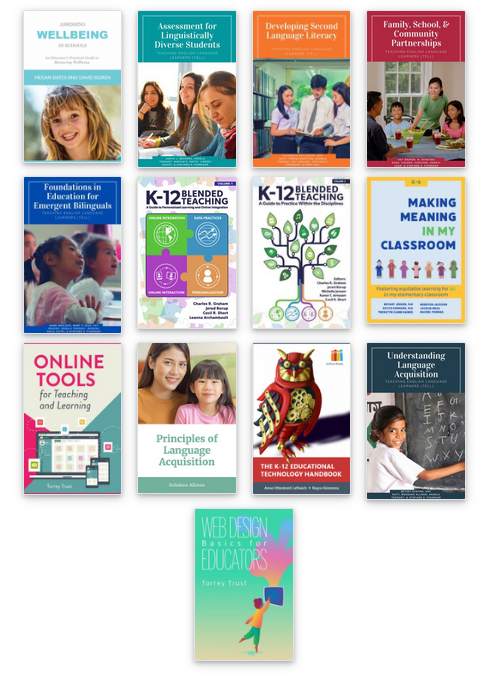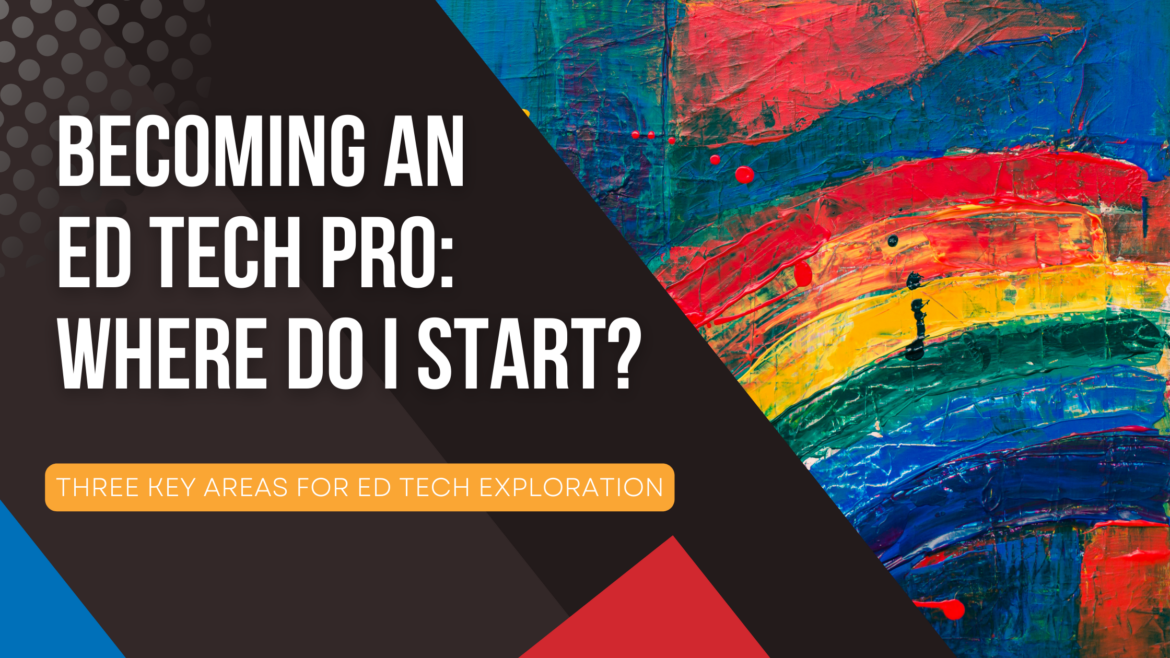Recently, a children’s librarian asked me:
“I’m trying to learn about ed tech but don’t know where to start. Are there any great books, articles, or people I should check out?”
Success hinges on three areas when focusing on becoming an ed tech pro.
Three Key Areas for Ed Tech Exploration
You will need a solid grounding in several key areas:
- Evidence-Based Instructional Strategies
- Instructional Coaching
- Digital Tools
Let’s take a look at each one of these areas one at a time.
1. Evidence-Based Instructional Strategies
First, as an ed tech newbie, you should check out joining TCEA. It’s not expensive to join, and you get access to weekly webinars that earn you credit. If you’re not ready to join, you’ll still find tons of great resources on the TCEA blog.
One way to get a handle on evidence-based instructional strategies is to read a few books, such as:
- Mike Bell’s “The Fundamentals of Teaching“
- Hattie, Fisher, Frey’s “Visible Learning” series of books (e.g. Literacy, Math, Science)
- Zaretta Hammond’s “Culturally Responsive Teaching and the Brain“
These should really ground you in evidence-based strategies. If you want to take it to the next level, consider taking the TCEA Evidence-Based Teaching course ($39).
2. Instructional Coaching
Without coaching, you are wasting your time. No one cares how cool a digital tool is if it can’t impact learner achievement and if they don’t know how and when to implement it. That’s where coaching comes in and sets up a structure for assisting others in supporting student learning. To coach effectively, you need to ensure you and your coachee have knowledge of:
- Evidence-based strategies (and when to use them)
- Digital tools (and how to use them)
- Formative assessment (for gauging when and how to best use strategies and technology)
There are lots of coaching approaches. I’m partial to Diane Sweeney’s work. You can also find an overview of coaching approaches in the TCEA blog.
3. Digital Tools
When you think about digital tools, you may first ask, “Where do I start? There are so many!” The truth is, you need a place you can go that allows you to mix-n-match. You are matching digital tools with the instructional strategy that will best support them.
For example, K-3 teachers use strategies for teaching vocabulary, but what digital tools do you use with those? In this article, Vocabulary Acquisition: Three Tools for You, we offer a variety of ways digital tools and strategies go together.
Another option, though, is to look at something called EduProtocols. These templates and resources offer ways to connect tried-n-true strategies to digital tools.
A Parting Thought
You are well-positioned for the shift if you focus on these three key areas. A lot of ed tech folks are now called “digital innovation specialists” while others are taking on the role of an instructional coach. Having a grasp of these three areas can ensure your success with:
- Instructional strategies
- The ability to build rapport with teachers (for coaching)
- A solid awareness of digital tools that amplify learning outcomes
Go for it. Achieve escape velocity.
Bonus Items
#1 – Find Free Books
Do you want to pay for books, or get them at no cost? If it’s the latter, you are going to love this website Doug Holton from the Ed TechDev Blog introduced me to. The organizers point out the following:
These free books were specifically designed with K-12 teachers in mind.
They address a variety of topics. They may be useful in many settings. Settings include teacher education, licensure, and professional development.

Some that are of special interest to ed tech professionals include:
- Online Tools for Teaching and Learning
- K-12 Blended Teaching, Volume 1
- K-12 Blended Teaching, Volume 2
- The K-12 Educational Technology Handbook
The other texts are also of high-interest depending on your field. As a bilingual technologist, two that I want to read are Understanding Language Acquisition: Teaching English Language Learners and Foundation in Education for Emergent Bilinguals.
Wondering about copyright, aren’t you? Is this one of those websites where the books are “free” but sharing is in violation of the Digital Millennium Copyright Act (DMCA)? Nope. These are legal shares that are available for download. Isn’t that amazing?
“All of our content is freely available, and most of it is free to remix, reuse, and redistribute without seeking permission. (source)”

Additionally, you can read the books in your browser or have them read to you aloud.
#2 – Online Courses
While TCEA offers a wealth of exciting online courses at the most affordable price ($39 each), there are many sources of online content available online. One such source is ModernClassrooms.org, recommended by Charlie Gramatges (@cgramatges@mastodon.education). “ModernClassrooms.org is filled with micro courses that change the way you think about Ed Tech,” says Charlie. You might also like to review this list of online course providers.

